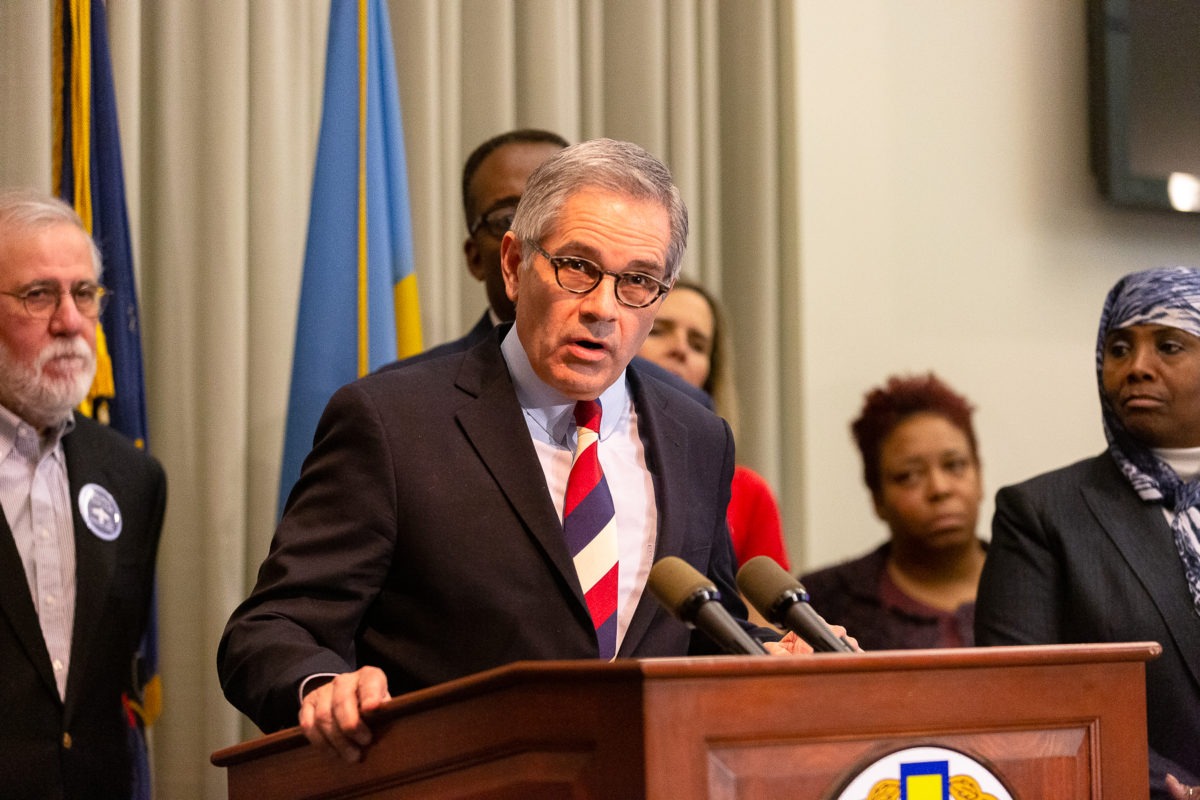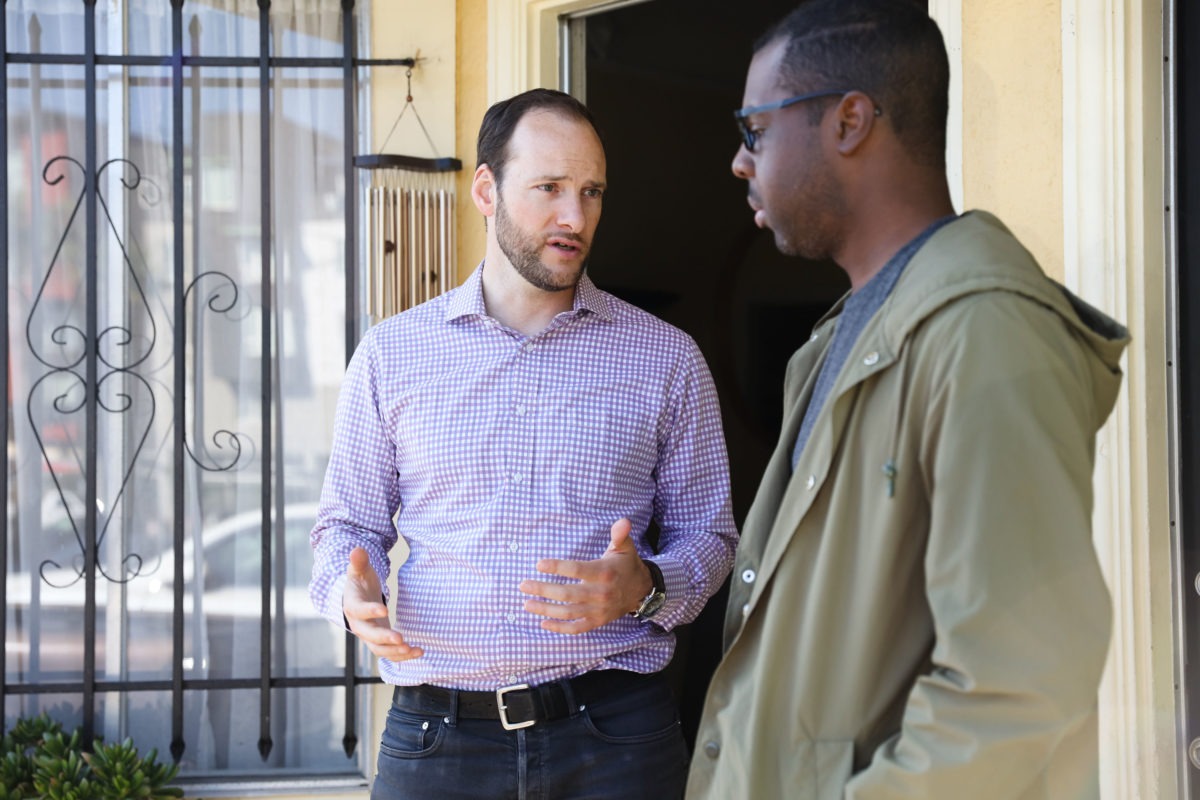Prosecutors Across U.S. Call for Action to Mitigate Spread of Coronavirus in Jails and Prisons
In a joint statement, they emphasized the need to reduce the number of people currently incarcerated in order to contain the deadly COVID-19 virus.

Today, 31 top prosecutors across the country issued a joint statement, saying they are committing to take meaningful steps to reduce mass incarceration and prevent or slow the spread of COVID-19 in jails, prisons, and courtrooms.
Miriam Krinsky, the founder and executive director of Fair and Just Prosecution, which organized the statement, told The Appeal via email, “These are sensible, just and humane steps that are not simply vitally important to implement now — in the face of the pending public health crisis — but also reforms that are long overdue.”
Other signatories include Suffolk County District Attorney Rachael Rollins, Philadelphia District Attorney Larry Krasner, and San Francisco District Attorney Chesa Boudin.
These are sensible, just and humane steps that are not simply vitally important to implement now … but also reforms that are long overdue.
Miriam Krinsky founder and executive director of Fair and Just Prosecution
The letter includes five key recommendations to reduce the number of incarcerated people in the U.S., including adopting cite-and-release policies to keep people out of jail; releasing people held pretrial because they cannot afford money bail; and releasing those with six months or less left to serve and people who are considered high-risk for contracting the virus, including the elderly and ill. The letter also calls on the federal government to suspend immigration detentions in most cases and release anyone held in immigration detention facilities under age 21.
Additionally, prosecutors are calling on government actors to implement proper healthcare protocols in jails and prisons, eliminate medical co-pays for those confined, avoid the use of solitary confinement to contain the virus, and make phone calls free for those who are incarcerated.
Across the country, criminal legal system actors are attempting to mitigate what seems likely to be a massive disaster should COVID-19 begin spreading through jails, prisons, immigration detention facilities, and courthouses. (Already, some correctional officers and prisoners have tested positive for the virus. A New York City Department of Corrections and Community Supervision employee died of the virus yesterday.) While some law enforcement responses have focused on blocking visitors to correctional facilities and creating plans for locking down facilities, some prosecutors are opting to accelerate criminal justice reforms in order to ensure both community health and respect for individual constitutional rights.
Jails and prisons are among the worst-positioned to manage an outbreak of a disease like COVID-19. Because people live in close quarters, it’s “impossible” for prisoners to comply with the recommended six feet of social distancing that health care and government officials are encouraging, Rikers Jail Complex former chief medical officer Homer Venters told The New Yorker. Many people who are incarcerated also lack sufficient access to soap, running water, hand sanitizer, and other cleaning products. Finally, people in jails tend to have underlying medical conditions that makes them particularly prone to diseases like COVID-19. According to the Prison Policy Initiative, people in jails have higher rates of asthma, heart problems, and HIV than the general population.

Philadelphia District Attorney Larry Krasner announced that his office would not seek to hold anyone arrested for a non-violent felony or misdemeanor “for any amount of cash bail.” Said Krasner: “People charged with non-violent offenses generally should not be added to the jail population at this time. Doing so would only increase risk of infection to police officers, guards, other detainees, and workers.”
In Seattle, where COVID-19 has spread rapidly, District Attorney Dan Satterberg announced that his office would not file charges, except in exceptionally violent cases.
San Francisco District Attorney Chesa Boudin has vowed to work with the public defender’s office to hasten the release of people who are at high risk of illness and those who don’t need to be behind bars for public safety reasons. Six Northern California counties yesterday implemented provisions requiring residents to remain in their homes for everything but the most essential outings.
“As elected prosecutors, our job is to serve and protect everyone in our district, including jail inmates and staff,” Boudin told The Appeal over email. “It is imperative that we make difficult decisions to quickly reduce the jail population and save lives and prevent jails from becoming a vector for the spread of disease.”
While the COVID-19 pandemic prompted the letter, Krinsky noted that this moment is an opportunity to encourage prosecutors and the criminal legal system to embrace sorely needed reforms at all times. “Elected prosecutors have an obligation to protect the safety and wellbeing of everyone in their community, regardless of their race, ethnicity, or country of origin,” she said.
